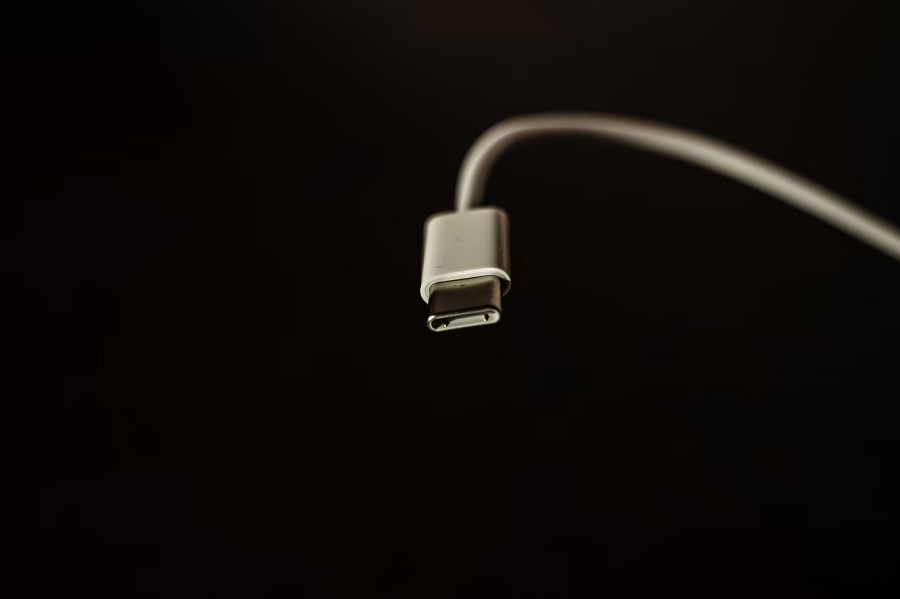Brazil’s national telecommunications agency, also known as Anatel, is exploring the possibility of requiring phone manufacturers to support USB-C charging. The agency has opened a public consultation on the matter that could lead to a policy being implemented in two years.
Anatel opened Public Consultation number 45/2022 earlier this week and has started gathering opinions from companies and individuals on its proposal to make USB-C the standard charging mechanism for phones that will be sold in Brazil. The agency will accept contributions to the consultation until Aug. 26.
European Union lawmakers reached a deal earlier this month that will make USB-C the common charger for different types of electronics in the region. The European Parliament said in a press release that needing a single charger for various devices should mitigate electronic waste and reduce the hassle for consumers. A few weeks later, United States Senators Ed Markey, Elizabeth Warren, and Bernie Sanders co-signed a letter urging the U.S. Department of Commerce “to follow the EU’s lead.”
These developers are what inspired Anatel to move forward with its own proposal to make USB-C the common charger for mobile phones. “Aware of the aforementioned movements in the international market, Anatel's technical area evaluated the topic and presented a proposal with a similar approach for application in the Brazilian market,” the agency said in the (machine-translated) blog post.
The law passed in the EU is set to make USB-C the standard charger for mobile phones, tablets, earbuds, digital cameras, headphones, headsets, handheld consoles, and portable speakers. But Anatel’s current proposal specifies that it would only apply to mobile phones.
Tecnoblog reports that part of Anatel’s proposal is to make USB-C the required phone charger by July 2024. If that timeline is met, its implementation would happen a few months before the EU. The European Parliament said its common charger policy will take effect “by autumn 2024.”
Anatel said it is proposing to standardize USB-C chargers “because it is already widely used by most global manufacturers,” which is true for most Android phones in the market. Apple, on the other hand, still relies on the Lightning port for the iPhone’s wired charging. But that might change next year, following reports that the iPhone 15 could be the first Apple smartphone to sport a USB-C port.
Photo by Mishaal Zahed on Unsplash



 SpaceX Updates Starlink Privacy Policy to Allow AI Training as xAI Merger Talks and IPO Loom
SpaceX Updates Starlink Privacy Policy to Allow AI Training as xAI Merger Talks and IPO Loom  Palantir Stock Jumps After Strong Q4 Earnings Beat and Upbeat 2026 Revenue Forecast
Palantir Stock Jumps After Strong Q4 Earnings Beat and Upbeat 2026 Revenue Forecast  Amazon Stock Rebounds After Earnings as $200B Capex Plan Sparks AI Spending Debate
Amazon Stock Rebounds After Earnings as $200B Capex Plan Sparks AI Spending Debate  Alphabet’s Massive AI Spending Surge Signals Confidence in Google’s Growth Engine
Alphabet’s Massive AI Spending Surge Signals Confidence in Google’s Growth Engine  Nvidia, ByteDance, and the U.S.-China AI Chip Standoff Over H200 Exports
Nvidia, ByteDance, and the U.S.-China AI Chip Standoff Over H200 Exports  SpaceX Reports $8 Billion Profit as IPO Plans and Starlink Growth Fuel Valuation Buzz
SpaceX Reports $8 Billion Profit as IPO Plans and Starlink Growth Fuel Valuation Buzz  OpenAI Expands Enterprise AI Strategy With Major Hiring Push Ahead of New Business Offering
OpenAI Expands Enterprise AI Strategy With Major Hiring Push Ahead of New Business Offering  Instagram Outage Disrupts Thousands of U.S. Users
Instagram Outage Disrupts Thousands of U.S. Users  Oracle Plans $45–$50 Billion Funding Push in 2026 to Expand Cloud and AI Infrastructure
Oracle Plans $45–$50 Billion Funding Push in 2026 to Expand Cloud and AI Infrastructure  Elon Musk’s SpaceX Acquires xAI in Historic Deal Uniting Space and Artificial Intelligence
Elon Musk’s SpaceX Acquires xAI in Historic Deal Uniting Space and Artificial Intelligence  Nvidia Confirms Major OpenAI Investment Amid AI Funding Race
Nvidia Confirms Major OpenAI Investment Amid AI Funding Race  Global PC Makers Eye Chinese Memory Chip Suppliers Amid Ongoing Supply Crunch
Global PC Makers Eye Chinese Memory Chip Suppliers Amid Ongoing Supply Crunch  Nvidia CEO Jensen Huang Says AI Investment Boom Is Just Beginning as NVDA Shares Surge
Nvidia CEO Jensen Huang Says AI Investment Boom Is Just Beginning as NVDA Shares Surge  Anthropic Eyes $350 Billion Valuation as AI Funding and Share Sale Accelerate
Anthropic Eyes $350 Billion Valuation as AI Funding and Share Sale Accelerate  Tencent Shares Slide After WeChat Restricts YuanBao AI Promotional Links
Tencent Shares Slide After WeChat Restricts YuanBao AI Promotional Links  SoftBank and Intel Partner to Develop Next-Generation Memory Chips for AI Data Centers
SoftBank and Intel Partner to Develop Next-Generation Memory Chips for AI Data Centers  Baidu Approves $5 Billion Share Buyback and Plans First-Ever Dividend in 2026
Baidu Approves $5 Billion Share Buyback and Plans First-Ever Dividend in 2026 































